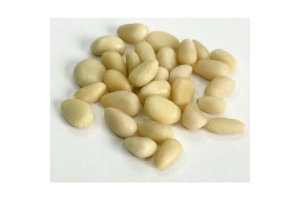Taking Ownership of Type 2 Diabetes: A Lifestyle Disease

Taking Ownership of Type 2 Diabetes: A Lifestyle Disease
Introduction
Type 2 Diabetes is a prevalent and potentially serious health condition characterized by impaired insulin function and disrupted glucose metabolism. In this document, we will explore the importance of taking ownership of Type 2 Diabetes as a lifestyle disease. By understanding its history, causes, and natural treatment options, individuals can make informed decisions to manage their condition effectively.
History of Type 2 Diabetes
Understanding the historical context of Type 2 Diabetes sheds light on its significance. This disease has been recognized for centuries, with the ancient Greeks and Egyptians documenting its symptoms. However, it wasn't until the 19th and 20th centuries that medical advancements and research provided more insights into its causes and treatment approaches. Today, with the rise of sedentary lifestyles and unhealthy dietary habits, the prevalence of Type 2 Diabetes has reached alarming levels, becoming a global health challenge.
Causes of Type 2 Diabetes
Type 2 Diabetes is primarily influenced by lifestyle factors. Poor dietary choices, including a high intake of processed foods, sugary beverages, and unhealthy fats, contribute to insulin resistance and elevated blood sugar levels. These foods, which are often high in calories and low in nutritional value, can lead to weight gain and increased fat deposition, particularly in the abdominal region. The excess fat tissue triggers inflammation and disrupts insulin signaling, impairing the body's ability to regulate blood sugar effectively.
Sedentary behavior, such as prolonged sitting and lack of physical activity, also plays a significant role in the development of Type 2 Diabetes. Regular exercise helps maintain a healthy weight, improves insulin sensitivity, and promotes glucose utilization by the muscles. Conversely, a sedentary lifestyle hinders insulin action and promotes weight gain, further exacerbating the risk of developing diabetes.
Genetic factors and a family history of the disease can increase the risk of developing Type 2 Diabetes. While genetics play a role, lifestyle choices still have a significant impact. In individuals with a genetic predisposition, an unhealthy lifestyle, characterized by poor dietary habits and lack of exercise, can increase the likelihood of developing the condition.
Environmental factors, such as the obesogenic nature of modern societies, also contribute to the rising prevalence of Type 2 Diabetes. The easy availability of high-calorie, processed foods, coupled with sedentary lifestyles, creates an obesogenic environment that promotes weight gain and insulin resistance.
Natural Treatments: Diet, Exercise, Sleep, and Stress Management
Taking a natural approach to managing Type 2 Diabetes can have significant benefits. Diet plays a pivotal role, with an emphasis on unprocessed Whole Foods and a low-carbohydrate intake. By reducing or eliminating processed sugars and refined carbohydrates, individuals can stabilize blood sugar levels and improve insulin sensitivity. A diet rich in fiber, lean proteins, and healthy fats supports weight management and overall metabolic health.
Exercise is another crucial aspect of managing Type 2 Diabetes. Regular physical activity helps control weight, improves insulin sensitivity, and enhances cardiovascular health. Engaging in light cardio exercises, such as brisk walking or cycling, along with strength training, yoga, swimming, or other enjoyable activities, can have positive effects on blood sugar control and overall well-being.
Sufficient sleep is essential for regulating blood sugar levels and overall metabolic health. Establishing a consistent sleep routine, creating a sleep-friendly environment, and practicing relaxation techniques can contribute to better sleep quality. Quality sleep supports hormone regulation and optimal glucose metabolism.
Stress management techniques also play a vital role in managing Type 2 Diabetes. Chronic stress can contribute to elevated blood sugar levels and hinder diabetes management. Practices such as meditation, deep breathing exercises, and finding healthy outlets for stress reduction, like engaging in hobbies or spending time in nature, can help individuals effectively manage stress and improve their overall well-being.
Conclusion
Taking ownership of Type 2 Diabetes means making a conscious decision to be in control of the final outcome. By embracing natural treatment options, individuals can empower themselves to manage their condition effectively. Whether it's through dietary modifications, regular exercise, prioritizing sleep, or implementing stress management techniques, individuals have the ability to take charge of their health and well-being.
By making informed choices and understanding the impact of lifestyle factors, individuals can reduce their reliance on modern medicine. While medical interventions are important in certain cases, the proactive approach of self-management can lead to improved outcomes and a better quality of life. Of course as always refer to your doctor for more information if you are unsure.



 Over 500 health and wellness products
Over 500 health and wellness products Everyday savings and weekly promotions
Everyday savings and weekly promotions The best natural and organic produce from around the world
The best natural and organic produce from around the world Committed to you - over 10 years of trusted service
Committed to you - over 10 years of trusted service



